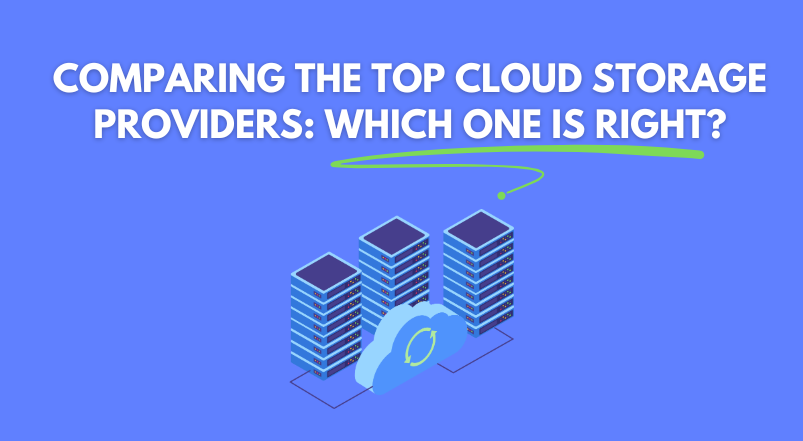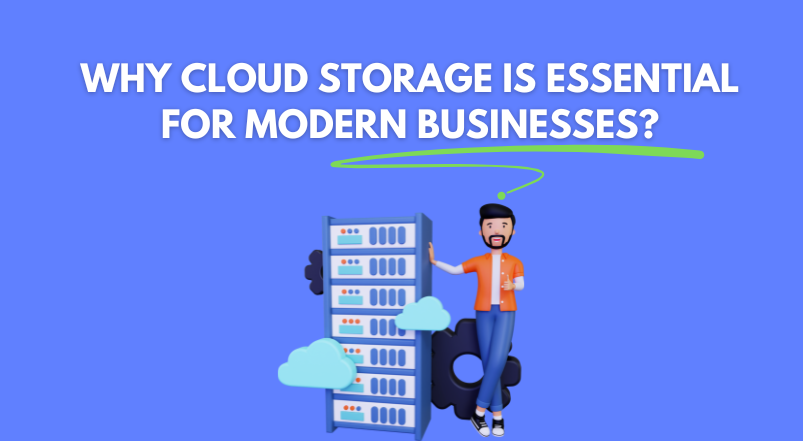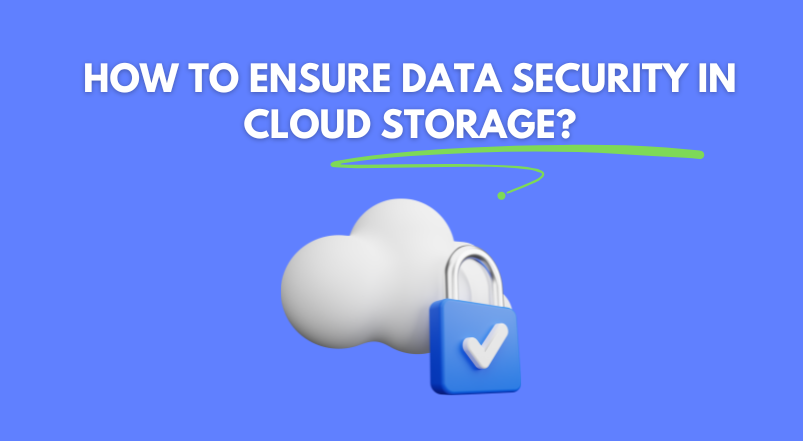
Comparing the Top Cloud Storage Providers: Which One is Right?
Choosing the right cloud storage provider is crucial for businesses seeking to store, manage, and access their data efficiently and securely. With numerous options available, it can be challenging to decide which provider best meets your needs. This guide compares the top cloud storage providers in 2024 to help you make an informed decision.
1. Amazon Web Services (AWS) S3
Amazon Web Services (AWS) Simple Storage Service (S3) is a leading cloud storage solution known for its reliability, scalability, and extensive features.
- Scalability: AWS S3 offers virtually unlimited storage, making it ideal for businesses of all sizes.
- Security: AWS provides robust security features, including encryption, access control, and compliance with various industry standards.
- Pricing: AWS S3 uses a pay-as-you-go pricing model, which can be cost-effective but may become expensive for high usage.
Pros:
- Highly scalable and reliable
- Advanced security features
- Extensive integration options
Cons:
- Complex pricing structure
- Can be expensive for large-scale storage
2. Google Cloud Storage
Google Cloud Storage is a flexible and powerful storage solution, integrated seamlessly with Google’s suite of cloud services.
- Performance: Google Cloud Storage offers high-performance storage with low latency, making it suitable for data-intensive applications.
- Security: Google provides end-to-end security, including encryption at rest and in transit, and compliance with various regulations.
- Pricing: Competitive pricing with four different storage classes to optimize cost and performance.
Pros:
- Excellent performance and low latency
- Robust security features
- Flexible pricing options
Cons:
- Complex setup for beginners
- Additional costs for data egress
3. Microsoft OneDrive for Business
Microsoft OneDrive for Business is a popular choice for organizations using Microsoft 365, offering seamless integration with other Microsoft services.
- Integration: Tight integration with Microsoft Office applications and collaboration tools like Teams.
- Security: Advanced security features, including encryption, compliance, and data loss prevention.
- Pricing: Competitive pricing with various plans, including Microsoft 365 subscriptions.
Pros:
- Seamless integration with Microsoft 365
- Strong security and compliance features
- User-friendly interface
Cons:
- Limited storage for basic plans
- Performance can vary based on location
4. Dropbox Business
Dropbox Business is a user-friendly cloud storage solution known for its simplicity and powerful collaboration features.
- Collaboration: Advanced collaboration tools, including shared folders and real-time editing.
- Security: Robust security measures, including encryption, two-factor authentication, and compliance with industry standards.
- Pricing: Offers several plans to cater to different business needs, but can be pricier compared to other options.
Pros:
- Easy to use and set up
- Excellent collaboration features
- Strong security
Cons:
- Can be expensive for large teams
- Limited advanced features compared to other providers
5. Box
Box is a cloud storage provider tailored for businesses, offering strong security, collaboration, and integration capabilities.
- Security: High-level security features, including encryption, enterprise-grade compliance, and advanced access controls.
- Collaboration: Powerful collaboration tools, including file sharing, real-time editing, and workflow automation.
- Pricing: Various pricing plans designed for businesses, with an emphasis on enterprise solutions.
Pros:
- Robust security and compliance features
- Excellent collaboration tools
- Good integration with third-party apps
Cons:
- Higher pricing for advanced plans
- Can be complex to set up for smaller businesses
Conclusion
Choosing the right cloud storage provider depends on your specific business needs, including storage capacity, security, performance, and budget. Amazon Web Services (AWS) S3, Google Cloud Storage, Microsoft OneDrive for Business, Dropbox Business, and Box each offer unique advantages that cater to different requirements. At EZ Brand Builders, we understand the importance of selecting the right technology to support your brand’s growth. Evaluate your business needs and choose the cloud storage provider that best aligns with your goals for 2024 and beyond.









